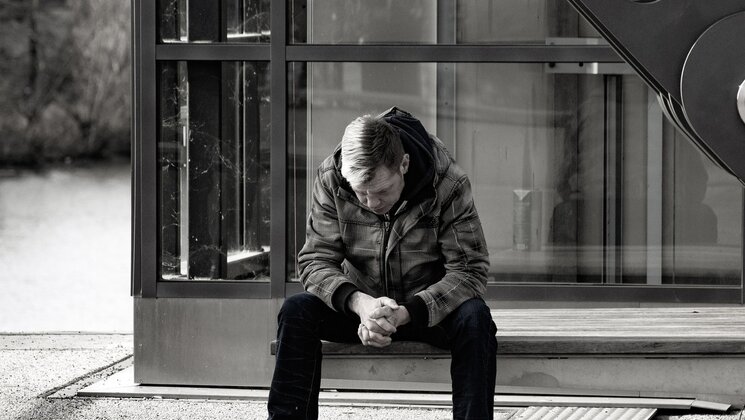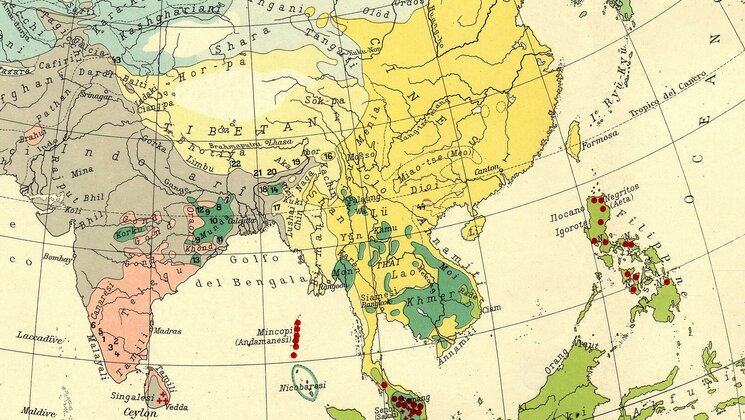Skytte Election Analysis Seminar Series
The series is organized by the Johan Skytte Institute of Political Studies in the framework of Jean Monnet Centre of Excellence “REPAIR: Rejuvenating Democracy in the EU” (grant agreement 101085795).
PREVIOUSLY HELD
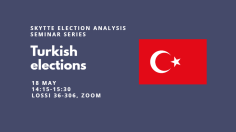
On May 14, 2023, the eyes of the world were on Turkey, as locals vote in the presidential and parliamentary elections. For many, this is a landmark election, as the opposition is displaying unprecedented unity in attempts to end the 20-year rule of President Recep Tayyip Erdoğan and his Justice and Development Party (AKP).
Turkey is facing a myriad of issues. Rampant corruption and nepotism, coupled with a freefalling economy. Increase in human rights abuses and violence against women and children. Rapidly changing social structure due to the influx of refugees from Syria, Afghanistan, and Iran. The consequences of the severe earthquake Turkey experienced earlier this year – one of the largest natural disasters in its history. Externally, as a result of Erdoğan’s policies, Turkey has drifted further from the West and its norms. In the backdrop of all of this, Erdoğan and AKP have throughout their rule promoted polarizing discourses, dividing the society into disputing factions.
This context makes the unification of the opposition into a Nation Alliance, commonly termed as the Table of Six and represented by Kemal Kılıçdaroğlu as the candidate for president, especially significant. The support they have garnered from many other political parties in their attempt to defeat Erdoğan, has led the latter and the AKP to preemptively call the elections a “coup attempt,” and to seek their own alliances with everyone from radical Islamists to social democrats.
Both domestically and externally, a lot is at stake at these double elections. Will Erdoğan lose after 20 years in power? Will the united opposition stand until the election, and in case of victory, beyond this to implement constitutional reforms? What do these elections mean for the EU, NATO, US, Russia, Caucasus, and the Middle East?
The discussion was led by Izzet Yalin Youksel, Junior Research Fellow at the Johan Skytte Institute of Political Studies, and Helin Sarı Ertem, Associate Professor at Istanbul Medeniyet University, and moderated by Piret Ehin, Professor of Comparative Politics.
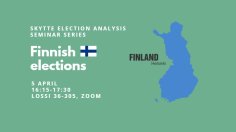
Amid international upheaval, the Finnish parliamentary elections on April 2 focus on the economy. As all significant parties agree on the need to join NATO and give aid to Ukraine, pre-election debates have focused on inflation and rising energy prices.
Increasing public debt looms as the most prominent issue. Finland has taken on a larger debt burden over successive governments, with spending again increasing during the pandemic. A recent reform of the public healthcare system has raised questions about the funding of healthcare and elderly care. As elsewhere in Europe, personal finances of voters have been stretched thin due to inflation and rising energy prices.
Three parties – Social Democrats, National Coalition and The Finns – are neck to neck in the polls. No clear left- or right-wing majority is visible from polling, which has resulted in an intense three-way competition between the largest parties. Each sees a significant chance of gaining, or keeping, the prime minister’s seat and in such tight competition, even small swings in voter support can have major consequences for coalition negotiations.
Whatever the election result, forming the next coalition will be difficult. Rhetoric between parties has hardened, shutting the door to cooperation between left-wing parties and The Finns, while the Center Party will likely remain in opposition to protect its electoral support which has been damaged by unpopular decisions in governing coalitions. The roads to a majority government, which are a tradition in Finnish politics, are limited.
Will Sanna Marin continue as the prime minister, or will Finland begin a new page in its history as a NATO member with a Eurosceptic prime minister? What will the next coalition look like?
Join the next meeting of the Skytte election analysis seminar to discuss Finnish parliamentary elections and their aftermath with Skytte doctoral student Ville Haapanen and Riku Luostari, Researcher at the People’s Archives in Helsinki.
The discussion is moderated by Piret Ehin, Professor of Comparative Politics.
The event is organized by the Johan Skytte Institute of Political Studies in the framework of Jean Monnet Centre of Excellence “REPAIR: Rejuvenating Democracy in the EU” (grant agreement 101085795).

Seminar on Estonian 2023 elections for international students and staff at the UT.
On March 5, Estonian citizens went to the polls to elect 101 members of the Riigikogu. In fact, the majority of voters voted early, during the week leading up to Election Day, either at a polling station or online.
What was at stake in these elections? What topics and issues excited and divided Estonian voters and parties? Who were the main contenders? What has changed in Estonian electoral politics as a result of Russia’s war on Ukraine and the multiple associated crises? What to make of the results? Who are the winners and who are the losers of this election, and what explains their fortunes? What kind of government will be formed and will Kaja Kallas continue as the Prime Minister? More specifically, what could the election results imply for foreigners residing in Estonia, including international students?
The discussion was led by Piret Ehin, Professor of Comparative Politics, and Martin Mölder, Researcher in Comparative Politics. Their brief presentations were followed by Q&A.
The event organized by the Johan Skytte Institute of Political Studies in the framework of Jean Monnet Centre of Excellence “REPAIR: Rejuvenating Democracy in the EU” (grant agreement 101085795).
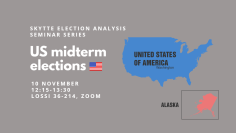
As elections in the United States become increasingly polarized, the 2022 midterms are no exception. On November 8, all 435 seats of the House of Representatives, as well as 35 of the 100 seats in the Senate are contested. Midterm elections are usually a defeat for the party of the president, but this year, the outcome could favor either party. Some experts have predicted a victory for the Grand Old Party (GOP), while others are not so quick to count the Democrats down and out, with some even predicting a Democratic victory.
The uncertainty stems from the changing demographics, and from the high levels of politicization and polarization. This results in some traditionally GOP- or Democrats-aligned states becoming purple, and the outcome hard to predict. In light of the most recent polls, it appears that the GOP has the advantage, but only after the elections can we see who has been more successful in mobilizing voters.
What are the domestic implications of the 2022 midterm elections, and their importance for the 2024 presidential elections? Why are conspiracy theories playing an increasing role in US political discourse? And what will be the foreign policy repercussions of these midterms?
Join the Skytte Election Analysis Seminar on the 2022 US midterms to discuss the election results, the questions above, and more! Leading the discussions are Aili Ribulis (European Union External Action Service) and Louis Wierenga (Johan Skytte Institute of Political Studies / Baltic Defence College). The event is moderated by Dr. Liisa Talving.
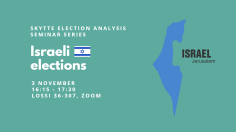
For Israelis heading to the polling stations on November 1st, it will be a very familiar affair. After all, these are the fifth legislative elections in the last four years. The 2021 elections brought to power an unprecedented and unexpected coalition: eight parties formed a unity government with 61 seats in a 120-seat Knesset, including, for the first time ever, an Arab Israeli party. But this coalition collapsed earlier this year after multiple government proposals failed to pass in the Knesset.
These developments reflect deep divisions not only on the political level but also in the society as a whole. This situation seems to play into the hands of Benjamin “Bibi” Netanyahu, leader of the Likud party. While being side-lined by the unity government, and despite being on trial for fraud, breach of trust and bribery, he nevertheless managed to undermine the unity coalition. Now he can, once again, position himself as the central figure of Israeli politics. Yet Likud has also been forced, for the first time in years, to change their playbook and campaign on concrete policy proposals.
Will Bibi’s tactics prove successful or not? Will ‘round five’ elections produce a less fragmented government? Are there any attempts to address the underlying governance issues, or is a ‘round six’ already on the horizon?
Join the Skytte Election Analysis Seminar on Israeli elections to discuss these and other questions! Leading the discussion are Dr. Renen Yezersky (Ben-Gurion University, Israel), and Merili Arjakas (Estonian Foreign Policy Institute). The event is moderated by Professor Piret Ehin.
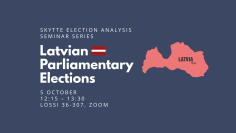
Latvian parliamentary elections on October 1 are likely to confirm or even exasperate a dispiriting trend of dysfunction and fragmentation that has become apparent in Latvian politics. The latter is due to the rise of anti-establishment parties but also the splintering between liberal and nationalist/conservative blocks. As a result, there will be more competition for a seat in the Saeima in 2022 than four years ago. These elections are also likely to mark a monumental change on the Russian issue. Russia’s invasion of Ukraine has divided Latvia’s large Russian-speaking minority, and Harmony – the previously leading political force that drew most of its support from Russian votes – is likely to not emerge as an election winner for the first time since 2011.
Researchers Lelde Luik and Edgars Eihmanis will help unpack the election results and answer questions related to possible future developments. What are the issues that parties and blocks are divided on? What could explain the political fragmentation that we have seen over the last political cycles? What is the ‘new face’ of Russian minority parties? How can the 2022 election be contextualized in the broader context of political competition since the Global Financial Crisis of 2008? The discussion is moderated by Anna Beitane.
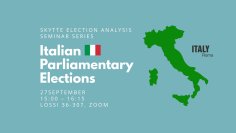
Italian Parliamentary Elections on September 25th will likely lead to a new balance in the country that has lately been experiencing governmental instability. After the collapse of Mario Draghi’s caretaker government towards the end of July, attempts to form a new coalition have been unsuccessful, as the party landscape has been anything but calm. New parties have been formed – such as the Civic Commitment following the split of the Five Star Movement in June –, as well as new electoral alliances. Notably, the frontrunners are conservatives, led by Giorgia Meloni’s Brothers of Italy. The surge of popularity of this far-right, “post-fascist” party might be more due to their perceived position as outsiders in the context of growing economic decline as a consequence of Covid-19 and the war in Ukraine, but their win would certainly steer the country strongly to the right - one might even say back towards Italy’s authoritarian past. It might also lead to a more Orbanesque positioning vis-à-vis the EU, as well as to a foreign policy more lenient towards Russia.
What are the election results and their implications? Will the changes in electoral rules and the downsizing of the parliament have any effect in a situation where about 40% of the electorate has indicated they do not have a preference and might not vote at all?
Join the Skytte Election Analysis Seminar on Italian parliamentary elections to discuss these and other questions with the help of Stefano Braghiroli, Associate Professor of European Studies, and Andres Reiljan, Research Fellow in Comparative Politics. The seminar is moderated by Maria Chiara Franceschelli (Scuola Normale Superiore, Italy), a visiting PhD student at the Johan Skytte Institute
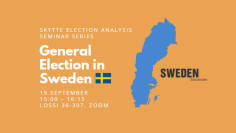
On September 11, Swedes head to the polls to elect 349 members of the Riksdag. The campaigns have revolved around domestic issues such as crime, immigration, and energy prices, but have also been shaped by Russia’s war on Ukraine and Sweden’s historic decision to join NATO. Magdalena Andersson, the current prime minister, and leader of Social Democrats is banking on high levels of personal support as the one who steered the country through the COVID-crisis and brought Sweden to NATO’s doorstep. However, polls show surging support for far-right Sweden Democrats who have overtaken Moderates as Sweden’s second biggest party.
Who will prevail - the ruling left-wing bloc or the right-wing opposition? Will voters rally around the flag at times of crisis, or will they punish incumbents? Will Sweden Democrats and Moderates join hands to turn the country to the right? When can we expect Sweden to have a new administration? These and many more questions will be answered in the Skytte Election Analysis Seminar on Swedish Elections.
Guiding us through the debates, the results, and the aftermath, is Katrin Uba, Associate Professor in Political Science at Uppsala University. The seminar is moderated by Piret Ehin, Professor of Comparative Politics at the UT.


